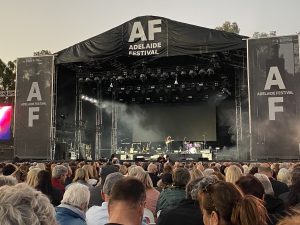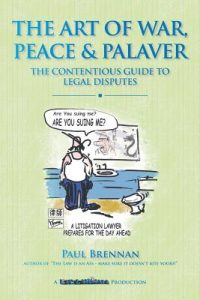The Varnished Culture's Thumbnail Reviews
Regularly added bite-sized reviews about Literature, Art, Music & Film.
Voltaire said the secret of being boring is to say everything.
We do not wish to say everything or see everything; life, though long is too short for that.
We hope you take these little syntheses in the spirit of shared enthusiasm.
Icehouse

Adelaide Oval’s Village Green, 8 February, 2022
‘Icehouse’ were never really the techno-guys they were painted as – Nothing to Do from their first (best?) album (when they were ‘Flowers’) is a song Lou Reed would have liked to write and perform – and this terrific retrospective, conceived around the 40th anniversary of the inaugural release of Great Southern Land, written by Iva Davies in homage to Australia and its landscape while homesick on the band’s first overseas tour, showed how their hits were basically great rock/pop, performed by a band that is pretty much as cohesive and professional as ever.
As we recall, the song list was: Icehouse; Walls; Electric Blue; Street Cafe; Crazy; Hey Little Girl; My Obsession; No Promises; Touch the Fire; Man of Colours; I Don’t Believe Anymore; Baby, You’re So Strange; Great Southern Land. Iva Davies voice is undimmed and he has worn so well he took the chance of presenting his young self in some of the 80s videos to accompany the songs (in fact, the visuals to this concert were outstanding for taste and clarity.) He was very well supported by rhythm guitarist Paul Gildea, Michael Paynter on keyboards and vocals, Hugo Lee impressing the crowd, particularly the ladies, on sax (that exemplar of the 1980s), Steve Bull (bass) and Paul Wheeler on drums. Your reviewer always thought Great Southern Land a tad monotonous and dirge-like: but live, it came startlingly awake, complemented by William Barton’s great work on the yidaki (didgeridoo).
The main set closed with two great early hits that had the audience chanting along and up on its Covid-infringing feet: Can’t Help Myself and We Can Get Together, and the encore featured Midnight Oil’s Put Down That Weapon (from ‘Diesel and Dust’) and, in a nice nod to Adelaide, an early Angels song, Marseilles. Icehouse closed with their very boppy Nothing Too Serious.
Iva Davies IS the man he used to be. A great time was had by all.
Continue Reading →The Golden Cockerel

By Nikolai Rimsky-Korsakov/ Directed by Barrie Kosky (Adelaide Festival, 9 March 2022)
Pushkin’s slight morality fable of the idiocy of war-mongering autocracy (1835) was taken up (1907) by Rimsky-Korsakov as a reflection of the faltering reign of Tsar Nicholas II, who made Joe Biden seem like Pericles.
The so-called dark wit, surreal burlesque, and satirical messaging is, regrettably, lost in this production. A colossal, over-extravagant Russian in-joke makes a not very good opera…and Mr. Kosky has, with his peculiar genius, turned it into an excruciating, absurdly repetitive, extended Monty python skit (we recalled Terry Gilliam’s filler cartoons from that series). The dancing, whilst impressive, recalls You Can’t Stop the Music. The staging, again quite impressive, is redolent of a Beckett play. And the sundry macabre touches would complement a Hammer horror film.
You couldn’t seriously fault the stars: British-Ukrainian Pavlo Hunka, and Russians Venera Gimadieva and Andrei Popov, or the Adelaide Symphony Orchestra under Arvo Volmer. But it really is time to stow directorial over-ambition that turns minor works into travesties. As we find at the conclusion of the opera, it was all a dream. As Merlin would say, “A dream to some. A nightmare to others.”

CREDITS
Co-production with Festival d’Aix-en-Provence, Adelaide Festival, Opéra National de Lyon and Komische Oper Berlin in association with Adelaide Symphony Orchestra.
CAST
Tsar Dodon Pavlo Hunka
Queen of Chemakha Venera Gimadieva
Astrologer Andrei Popov
Tsarevich Aphron Samuel Dundas
Tsarevich Gvidon Nicholas Jones
Polkan Mischa Schelomianski
Amelfa Alexandra Durseneva
Golden Cockerel’s Voice Samantha Clarke
On-Stage Cockerel Matthew Whittet
Dancers Sam Hall, Chris Mills, Rowan Rossi, Loci Walmsley
ADELAIDE SYMPHONY ORCHESTRA & ADELAIDE FESTIVAL CHORUS
Conductor Arvo Volmer
Director Barrie Kosky
Associate Director Denni Sayers
Assistant Director Eugene Lynch
Stage Designer Rufus Didwiszus
Costume Designer Victoria Behr
Lighting Designer Franck Evin
Choreographer Otto Pichler
Assistant Costume Designer Nathalie Pallandre
Assistant Choreographer Joseph Gebrael
Makeup & Wigs Assistant Marie Jardine
Assistant Lighting Designer Laurent Quain
Technical Director Fred Amiel
Head of Stage Mado Cogne
Language Coach Maria Timofeeva
Russian Translator Nadejda Levings
For Adelaide Festival
Producer Tess Appleby (until Dec 2021)
Producer Janelle McKenzie (from Jan 2022)
Program Assistant Amanda Ashley
Production Manager David McLean
Stage Manager Jess Nash
Assistant Stage Managers Emily Barraclough, Jess Wolfendale
AC Arts Secondment Dylan McBurney
Head of Wardrobe Kathleen Szabo
Fittings, Alterations and Maintenance Ashleigh Thomas
Costume Cutters / Maintenance Enken Hagge, Martine Micklem
Dressers Nadejda Levings, Sally-Jayne Chapman, Anna Perry, Nick de-Rohan, Kent Green, David Adams, Wendy Todd, Chris Rektsinis
Head of Wigs and Make Up Jana DeBiasi
Wigs and Make Up Matthew Ping, Teresa Scriva, Beverly Freeman, Dina Giaccio, Natasha Stone, Danielle Veltmyer, Charlotte Wilson, Kat-Arena Lean, Natasha Keneally, Jennifer Rossiter, Megan O’Mahoney, Sam Dawe, Marie-lyn Morant, Sharon Hage, Dominique Keeley
Head of Props Ashley Ng
Surtitles Catriona Herriott

Shades of Ukraine: Tsar Dodon encounters Shemakha
Haydn’s Solar Poetics

(Australian Haydn Ensemble, Adelaide Town Hall, Saturday 5 March 2022)
Haydn’s 30 year gig with the company-store-bound Esterházy players, players fed and watered by a family a bit like the Rockefellers of another age and place, was productive. His very first hits were symphonies 6, 7 & 8, the so-called Morning, Noon and Night symphonies, the first of some 80 that were written for the Esterházy clan. The programme notes put it well, albeit well-baked:
“The top minds of Europe were abuzz in 1761. Venus was transiting the sun for the first time since science had twigged that it could pinpoint our place in the solar system. Meanwhile, the most enlightened of Austria’s ruling families needed a composer to provide what we’d call content for their pre-eminent orchestra. It was a dream gig in some respects: yes, you had to wear servants’ livery but you got to live in a palace. Your bosses were no fools though – they could spot hackery a mile off – and even scarier were the musos’ demands.”
This great all-day concert showed glimpses of the early masterworks in that acoustic Elysium that is the Adelaide Town Hall.
It began with 20 + players on stage, tuning up. An elderly lady, near your correspondent, thought they’d started (but first, the now risible welcome-to-country, the risible face-mask strictures, the unnecessary mobile phone warnings and yet more limbering up) – then Erin Helyard, Conductor and harpsichordist, appeared.
TVC, addicted to sleeping in on the weekend, and with other plans for the evening, plumped for the noon session, featuring some great nascent works by Haydn and others:
C.P.E. Bach: Sinfonia in F Major Wq.181
Mozart: Keyboard pieces: Keyboard Piece K.2-5 (written when Amadeus was about 5 or 6)
Haydn: Keyboard Concerto in F Major Hob.XVIII:3
Haydn: Symphony in C Major Hob.I:7 Le Midi
The ensemble, some 20 plus players, were impeccable; even better, they were so cohesive, lapping-up Haydn’s generosity in passing-out cabaret turns to each instrument (as with a death-metal band, every one gets a solo), and the tone of the music seemed to emblematize the myriad noon-time shades – serene, hectic & bustling, sleepy, prandial. Helyard is a genius on the spinet; this one an original, that he played with verve and great taste, while conducting, which kept him as busy as a bee – and we were all transfixed for an hour and ten. Another great coup for the Adelaide Festival.
Credits at this link:
https://www.adelaidefestival.com.au/events/haydns-solar-poetics/
Continue Reading →Spencer (dir. Pablo Larrain 2021)

Pablo Larrain’s fiction about an imagined few days in the life of Diana, Princes of Wales at Sandringham Castle, Christmas 1991 will make you feel really sorry for that woman. Not Diana. Heavens no! But Kristen Stewart. The poor thing does very well in portraying Diana despite a poor Sloane Ranger accent and a script as leaden as the lining of a butler’s sink. Stewart gives Spencer’s Diana just as much weight as she merits – none. Spencer’s Diana is a whiney, entitled, disrespectful, self-centred fool. She’s world-weary and heartily sick and tired of the demands that those nasty Windsors make. She’s different, wild and modern! It’s rotten being a princess. She throws a tanty whenever a servant bothers her by knocking on her door to request that she come out because she’s late again. She stamps her feet when told that people are waiting for her. She tears her hair out in misery and despair when shown the luxurious, custom-made clothes that are set out for her every engagement. She goes so far in her defiance as to wear her Boxing Day lunch outfit to church on Christmas Day. So there!.
Oddly enough, the only two other viewers in the cinema saw things differently. They felt sympathy for Diana’s position and tut-tutted indignantly every time she was asked to do something unreasonable – such as dress for dinner (there’s a lot of dressing for dinner) so perhaps this is a film for fans of the late Princess of Wales (although even that seems doubtful). It is certainly not a film for fans of good film-making.
Kristen Stewart does rather overdo the Diana mannerisms, which she has down pat. We know that Diana artfully arranged her pose when she saw paparazzi – although why she considered looking up through her fringe to be appealing is anyone’s guess – so it’s doubtful that she really moue’d and tripped about like that in private, but that’s a fault of direction (one of many in this turgid production). This unpleasant portrayal of an obviously mentally unwell woman could be fine and interesting if Spencer was a good film, but it is not. It is shallow, turgid, silly and – worst of all – boring. This reviewer nearly walked out after 40 minutes of Diana vomiting, Diana bingeing, Diana sulking, Diana being late for every course of every meal.

Yes, the British Royal family are stuffy and insular. Yes, there is a lot of rigmarole involved in being a royal, even in private, but isn’t that obvious and kind of the point? After a decade as the Princess of Wales and as mother of the heir to the throne of England, Spencer’s Diana has to be told by Prince Charles (a very good Jack Farthing) in a nice bit of expository dialogue, that she needs to shut her curtains when she’s undressing and put on a bit of a mask for the public.
Poetic licence is one thing, but it has to be poetic, not pointless. Luckily, in Spencer, Diana’s deserted childhood home just happens to be next door to Sandringham. So in the night she goes wandering over to the fence with a pair of wire-cutters and breaks in. (Oh, security hate her, she’s so uncontrollable). She wanders about in a boofy evening dress and goes all misty-eyed when she sees her childhood bed and toys that are mysteriously and picturesquely still there. She’s wearing the necklace of eyeball-sized pearls that the Prince of Wales has given her, Charles having forgotten (or never known) that he gave the same item to Camilla Parker-Bowles (Emma Darwall-Smith, seen briefly). Diana finds the necklace asphyxiating and repeatedly rubs the back of her neck. A ghost appears. We don’t want to include any details that might spoil the subtle and surprising elements of this script, (by Steven Knight) so we’ll only hint at whose ghost it is. You’d never work it out. It’s the unhappy wife of a former king of England who got an axe applied to just that part of her neck. That’s all we’ll say. When the Page of Sandringham, Major Alistair Gregory (the always excellent Timothy Spall, looking a bit thin now), tells Diana a meaningless story about a friend who had his face blown off in Belfast, just as he (the friend) was recounting a story about a wild horse that could not be tamed, Diana responds, (just as we pray she won’t), “I hope they never tamed the horse”. That is the standard of the dialogue. The lovely Stella Gonet as Queen Elizabeth has about two lines; something to do with having one’s face on a coin. Otherwise, all she has to do is make that face look disapprovingly at Diana.

A match made in Hell
The Sandringham interiors are glorious. The viewer though, is constantly denied scenes which it could be expected that the target audience would want to see. For example, much is made of the imminent and family opening of Christmas gifts on Christmas Eve (SO tedious) but after all the teasing, we see only the aftermath. Instead there are long scenes when Diana stands outside or sits in a basement kitchen expatiating on all her personal problems to the kindly military Chef, Darren (a truly marvellous Sean Harris).
There are a few good moments which demonstrate what this film could have been. Diana’s lovely relationship with her sons (Jack Nielen and Freddie Spry) is blighted by her sharing of adult issues with them. William is sensitive to her issues and desperately tries to keep her on the rails. A fine performance from a young actor, and a tribute to the real William, if there is any truth in his portrayal. Well done also is the revelation made by Diana’s preferred dresser (Sally Hawkins is captivating as Maggie). It’s an out of place moment shoe-horned into the story, but amusing nevertheless, and the only surprise in the audience’s nearly two hours of trudging misery.
Every bad film has to have a montage and Spencer is no exception. It’s Diana through the ages; Diana running, running, dancing and running, twirling and dancing and running. She wanders about the gardens in her wedding dress.
The ending is utterly ludicrous. We won’t give away what happens, but suffice it to say, it is the low point of this shocker.
Continue Reading →Quo Vadis, Aida?

(Directed by Jasmila Zbanic) (2020)
If you were told that a mortal enemy was approaching your town, in force, what would you do? Would you up stakes (family, dog, cat, photos, bread and water)? Or would you wait and hope for relief from a UN Peace Keeping brigade, lacking both air support and Sun Tzu’s well-known power to keep peace (i.e. by preparedness for war)?
After Tito, who had ruled Yugoslavia for some 34 years under Soviet patronage (although he was not exactly a puppet) died in 1980, it was inevitable that the country would list, containing as it did a salad of ethnic, religious and political diversity, dressed with historic enmities. With the collapse of the Soviet Union a decade later, the prospect of general global war vanished (for a time), to be replaced by the ‘agony of the little nations.’ Yugoslavia broke into pieces. These pieces had surprisingly sharp edges.
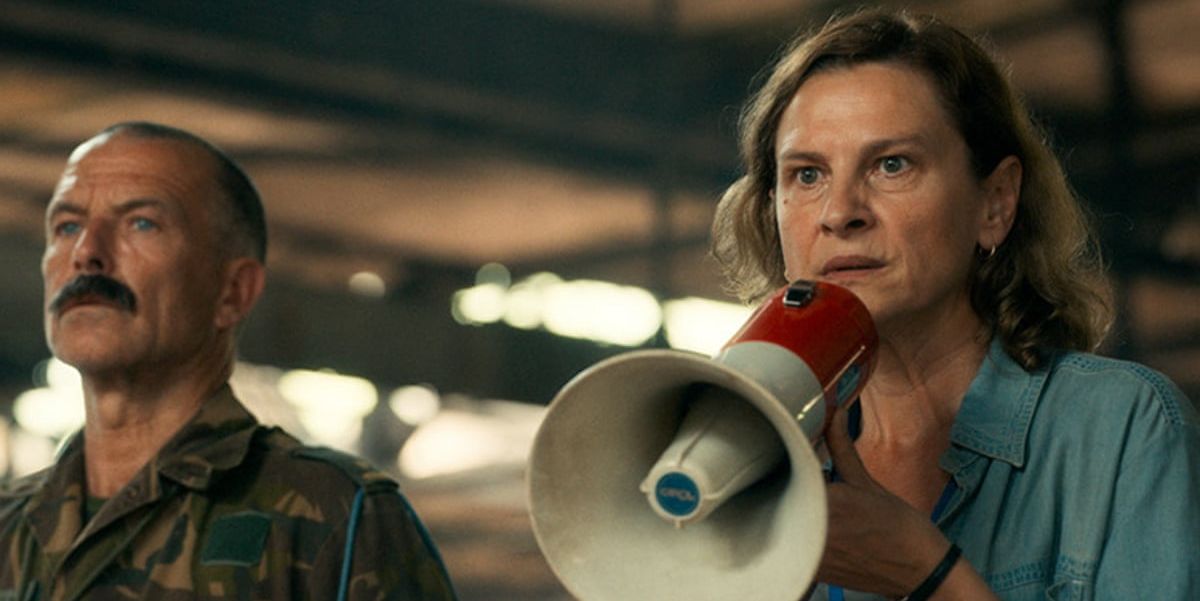
Quo Vadis, Aida? tells the story of one of those pieces, the Srebrenica massacre, where Ratko Mladic‘s Bosnian Serb forces killed some 8 thousand Bosnian Muslim boys and men, on 11 July 1995; the worst mass murder in Europe since WWII. After taking the town (what’s left of it) and having the Mayor and his administration ‘recalled’ in the most brusque way imaginable, the army descends on an abandoned factory/warehouse where some 4,000 villagers huddle under the ‘protection’ of Dutch peace-keepers, many thousands outside the gates, in the scorching heat, clamouring to get in. (Beautifully shot, the plight and manifest despair of the civilians is eerily reminiscent of scenes at Hamid Karzai International Airport last year).
Aida, a Bosnian translator, has to afford communications between the city councillors, her fellow villagers and the UN forces, all the while striving to save her husband and two sons from a fate she fears will be deadly. It makes for a very sad, indeed, harrowing film, told in the most clear and pure terms, with none of the hand-wringing or false moralizing we tend to get nowadays. The coda to the film, the same village in winter now, years hence, is as satisfying as it is almost surreal and vaguely ominous: evil casts a long shadow and may replicate. The direction here and throughout is as sure and tastefully stark as possible.
The entire cast is superb. Without detracting from anybody, we must single out Johan Heldenbergh as the frustrated and feckless colonel of the peacekeepers; Raymond Thiry as his exasperated 2IC (both abandoned by the UN and left to negotiate with – i.e., be shoved aside by – Mladic); Izudin Bajrović as Aida’s husband; the magnificent, malignant, cynical and truly formidable Mladic (Boris Isaković) and his henchman (Emir Hadžihafizbegović). Best for last – Jasna Đuričić, as Aida, gives an astounding performance.

Inventing Anna (Episodes 5 – 9) (Netflix 2022)

(See our review of Episodes 1-4 here).
We have watched the rest of the series, so that you don’t have to. In particular, we exhort you to never ever expose yourself to episode 9, which is without doubt the worst courtroom episode of a tv series ever made and possibly the worst episode of any tv series ever made.
Before we get to that rubbish bit of drama though, our favourite Russian conwoman Anna Sorokin/Delvey (Julia Garner) and her hapless hangers-on go to Morocco. Anna’s treat. They stay at the sort of resort that the Kardashians frequent. Morocco is beautiful but scary. If you have bad dreams in which your credit card is rejected, there is a truly tense scene in episode 5 of this otherwise suspense-free series that will give you night terrors. It’s played to great effect by Tracy Ullman lookalike (Katie Lowes as Rachel) who should know better by now. Rachel covers Anna’s Moroccan debts of $US62,000 on her personal and work credit cards. This can’t end well. It doesn’t. When Rachel scoots from Morocco because she’s finally wising-up (thanks to her boyfriend, more on this later), Anna demands that the resort take her to the airport by helicopter. They don’t. Anna can’t pay for her airfare from Morocco and asks her friend Kacy Duke (Laverne Cox) to pay. When Kacy agrees, Anna asks if she can buy her a first class ticket. She can’t. But these woman are only wising-up now because their boyfriends and husbands repeatedly tell their womenfolk, “Hey! Wise up! Anna’s scamming you!” That’s their sole job. Naturally, when Rachel reports a crime the police are all male and contemptuous and laugh at the silly girly. They’ve got real man work to do. Men!
Meanwhile eye-rolling, face-scrunching journalist Vivian Kent (Anna Chlumsky) has set up a pointless murder-investigation-style wall in the nursery at her house. Because when you are a journalist it is necessary to join photographs with red string for no reason at all. Oh no…a nursery…dear God, there’s a birth scene coming up. There’s a not-at-all derivative and not-at-all cliched scene first though, when we learn just how much of a trooper Vivian is. Vivian is on the phone trying to get that very last confirmation for her story which must be filed this minute! She’s actually in labour! She gets the ok not a second too soon and her husband hurries her off to hospital, while the entire staff of Manhattan magazine stand and applaud. Honest. Until this point the sole job of the men in Vivian’s office is to either be yelled at by her because they don’t value her, or to be in her gang and help her out with juicy tidbits about Anna which they apparently can find when she cannot. (These supportive and amusing gang members are also useful for throwing in the odd anti-Trump comment so that we know what time we are in and that we are on the side of the angels). After Vivian’s story takes off, of course all the men in the office adore her. Men!
Unfortunately, Vivian’s child has to be born and there’s nothing we can do about it. What a moment for an overacting (cervix-owing) actor. A birth scene. The best thing ever. Chlumsky chews the hell out of this one. Truly we reach Dunaway levels of over acting. Indeed, we are approaching O’Toole level. (He could never have been rivalled of course, had he owned a cervix). Naturally there’s a crisis during the birth, but all is well and Vivian is delivered of a little mite she can grimace at.
Vivian has to zoom off to Germany to investigate Anna a little more. She has to go today! Anna’s husband’s job is to support her and he doesn’t like it. “You’ve only just given birth!” Chlumsky’s whole face gymnastics during dialogue get even more peculiar when there’s a language barrier. So, when her facial muscles are worn out, she hires a translator which is really good because it calls for lots of expository dialogue. There’s yet more expository dialogue when a psychiatrist sits at the bedside of a hospital patient in the way that psychiatrists don’t, and when Anna’s lawyer and his wife have dinner with Vivian and her supportive husband for some reason.
In addition to Chlumsky’s heliographing of every emotion, the viewer is distracted by an enormously tall transgender woman playing Kacy (based on a real person who is not transgender), by the adult Delvey’s bad wigs and the young Sorokin’s ludicrous coloured contact lenses. And there’s always Irritating Anna’a accent, “Ah rahmembah waht he tahld me”. Vivian does gain some insight into Anna’s mindset and the potential sources of her fantasies. There are some useful coincidences. While Anna and her translator are engaging in expository dialogue on the street by a picturesque takeaway van, a passing pedestrian hears the name “Anna” and chimes in. “Do you mean Anna Sorokin?” Of course they do. Anna is such a rare name in Germany. The passer-by went to school with Anna Sorokin! So soon a whole lot of Anna’s former schoolmates get together to give Vivian some exposition on Anna’s school days which were basically Mean Girls meets Heathers meets Clueless. Vivian’s gonna need a lot of red string.
Then there’s the final episode about which we can say little without spoilers (and we are weary enough to know that some of you will watch it, despite our warnings). Let us just say that in the thousands of hours that the TVC reviewers have spent in courtrooms, we have never seen a Judge on the bench drinking a huge Starbucks iced coffee, or known a trial to be held up because a defendant who is in custody wanted to change her outfit. Nor have we known a lawyer who agreed to let a journalist see all of the discovered material he has, because said face-pulling journalist did a spot of shopping for him.
There are again, some beautiful interiors and clothes in Inventing Anna. There are echoes of the movie Shattered Glass. (A teenage techno-scammer, an imagined audience). But not enough pretty stuff and only echoes of a much better production.
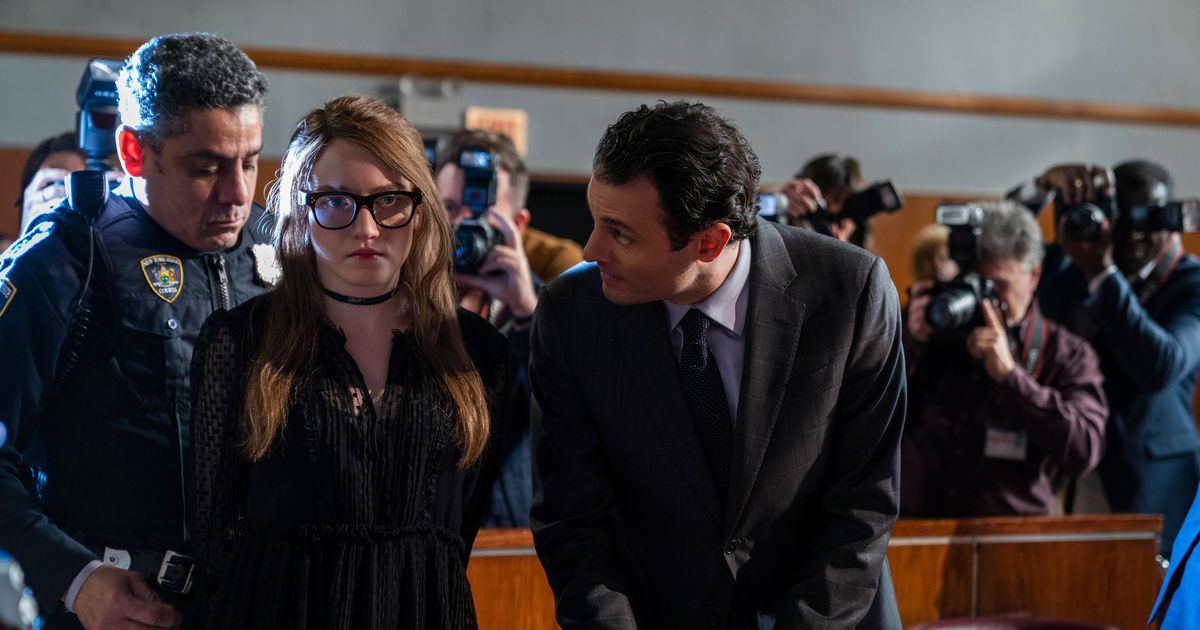
The Art of War, Peace and Palaver

(By Paul Brennan) (Amazon, 2018)
Over 23 hundred years ago, a dynastic militia in China wrote down their collective thoughts on the strategic management of conflict. The Art of War (aka Sun Tzu, after the Order’s paterfamilias – see main image) is recognised as a classic handbook for modern problems (whether in war, business or interpersonal quarrels). Litigation and legal negotiations are often referred to as war (or business) by other means, and can arise or be ignited from clashes of personality as well. Thus, some 23 hundred years later, experienced Queensland Lawyer Paul Brennan gives us a legal take on Sun Tzu, and just as the warlord showed wisdom in stressing the desirability of avoiding battle, so too Brennan helps the layman understand why even the most enthusiastic litigation lawyer always talks about settling out of court.
Covering a range of litigation scenarios – commercial, family, deceased estates, debt and insolvency, even neighbour disputes – also tackling government departments, banks, incorporated associations and the like, Brennan, in a highly accessible and practical way, synthesizes the modern management of legal risk, informed by terrific wry humour and a large humanity. (There are some nice bespoke illustrations as well). Unless you are Clive Palmer, who lists ‘litigation’ as one of his hobbies, or a corporation looking for a big tax deduction, this book acts as a soothing guide to how to bottle the acid and deal with legal problems in a practical, rather than bellicose, manner. By practical, we mean things like terminating a contract without it biting you on the backside (i.e., rescission rather than repudiation), dealing in good faith as the safest way to do business, neither a borrower nor lender being, and so on. Some examples will give you the flavour of this invaluable, indispensable, and entertaining book:
Sun Tzu: Compare your army with that of your superior in numbers enemy, so you know its strength and weakness. To their credit, government departments have the professionalism and training to listen quietly when you throw a tantrum. But what if slamming the phone down and telling your wife is not enough?
Sun Tzu: Prevent co-operation between the enemy’s large and small divisions and hinder the good troops from rescuing the bad. If you have seen the film Zulu, you will know what it is like to be in a Government Ombudsman’s office, risking daily being overrun by crazed complainants fresh from battle.
Sun Tzu: Exercise caution and foresight to avoid unnecessary battles. Ask a lawyer a simple question like how much will he charge for drawing up a loan document to lend $50,000 to a friend and you would expect a simple dollar figure answer. However, your lawyer is more likely to respond, “Are you crazy?”
When the King of Wu interviewed Sun Tzu to be his general, he asked if the principles of the “Art of War” could extend to teaching the King’s 180 concubines to march in formation. The King watched on as Sun Tzu lined up the concubines in two columns and put the two favourite concubines at the head of each column; Sun Tzu explained that when he gave the order to turn right they must turn right, turn left they must turn left. He asked if they understood and they indicated that they did. The drum rolled and he gave the order “Turn Right” at which all the concubines fell about laughing.
Sun Tzu: Don’t fight in your own territory. Fights with your Neighbours – You have the house, wife, two kids and the car and are living the modern dream. What new frontiers can you, the red-blooded male, conquer but those which abut your own garden?…Yet, if you feel that this is too drastic a course of action, then the answer is to leave your neighbour alone and take your frustrations out on waiters, bank clerks, taxi drivers, motorists and others of modest stature, who preferably do not know where you live. As people live closer and closer together, neighbour disputes become increasingly common. Dogs, children, fences, wives, noise etc., there is plenty to disagree about. You may find The Art of War to be particularly useful in this instance. It basically concerns neighbourhood disputes in Ancient China. It offers practical advice such as “The object of war is peace” which may be especially useful in considering reprisals against a brainless neighbour. You may also find it useful to note that, like some judges, the police can be swayed by a well-presented case, particularly when it comes to neighbour disputes.
Sun Tzu: A clever general not only wins, but excels in winning with ease. His victories bring him neither reputation for wisdom nor credit for courage. Fights with your Clubs Associations – Club membership has so much more to offer than a game of tennis, bowls or a few social drinks. Add to that intrigue, gossip, conflict, and the cut and thrust of the committee meeting which spills over to the AGM and it can be all-out war.
Sun Tzu: When active, appear inactive; when near, make your enemy believe that you are far away; when far away, make your enemy believe that you are near. As E.W. Howe said, “There are very few grave legal questions in a poor man’s estate.” But add even a little money and any family can become the stage for some stellar and demanding performances from its members. Often the indolent, gin-swilling, shopaholic daughter-in-law who must be kept away from the wonderful son’s inheritance can become in time, the saintly mother who sacrifices all for her own children and deserves every penny. The death of her husband may launch her into a new marriage and the role of hated, money-grabbing stepmother, only for her new husband to die and for her to inherit everything, leaving his children without an inheritance. But her loneliness throws her into the arms of a chancer and she becomes the fear-driven widow who is about to be taken for a ride by a man who through some quirk of law, could leave her money to his own children. [Also, Confucius say; ‘He who waits for dead man’s shoes goes barefoot’. – Ed.]
Sun Tzu: An army which is restless and distrustful invites trouble from your enemy. Management getting you down? Wait a minute, you are management. You are a band of four equals growing a company to sell it for a killing. Initially, your conservative, systematic approach mixes well with their knockabout, cavalier manner. However, as the company becomes more successful, the other three shareholders increasingly play the three musketeers as if you were one of the Cardinal’s men. Voting in the board meetings becomes three to one and not one for all. They decide to make your life a misery so that you leave without insisting on a full 25% share. They deliberately criticize or ignore everything you say, treating you like an employee and starving you of information to upset you, despite you being a director. This strategy can be very successful. Sun Tzu advised that it was better to crush your enemy’s will without fighting.
Continue Reading →Inventing Anna (Episodes 1 – 4) (Netflix, 2022)

We have seen the first four parts of the new nine-part series from creator and executive producer Shonda Rhimes which fictionalises the true story of Anna Sorokin, a Russian-born fraudster who scammed New York high society. (See our review of Episodes 5 – 9 here). There is a nice touch in which, at the beginning of each episode, the rubric, “This whole story is completely true, except for all the parts that are totally made up” appears in a different guise every time – on a photographer’s drop sheet, on a bronze plaque.
Julia Garner plays Sorokin (usually known as Anne Delvey) with a peculiar pseudo-European accent which, oddly, does not seem to excite curiosity. Nor does her claim to speak 7 languages and have an eidetic memory despite not recognising the toast ”nostrovia’*. Sorokin, or Delvey, has no apparent means of support (Daddy has cut her off and her trust fund doesn’t vest until she is 25). Nor is anyone alarmed by the fact that her boyfriend, Chase Sikorski (a very creepy Saamer Usmani), promises to make them all millions through his technology ‘Wake’, which will unite the peoples of the world through their dreams (the type people dream when asleep, not the kind where they believe that a nobody in her 20s can set up an exclusive social club/art gallery on Fifth Avenue).
That Sorokin deceived even one of the apparently savvy and definitely wealthy socialites, investors and bankers who were fooled is incredible, if the real Sorokin at all resembles the shonky and childlike character portrayed with perfect chilling arrogance by Garner. Of course, some must have laughed in Sorokin’s face, but this series is only concerned with people too gullible or stupid to recognise a con artist before it’s too late. We do suspect that the real people involved would have been harder-edged and even more unpleasant than their truly unlikeable screen counterparts.
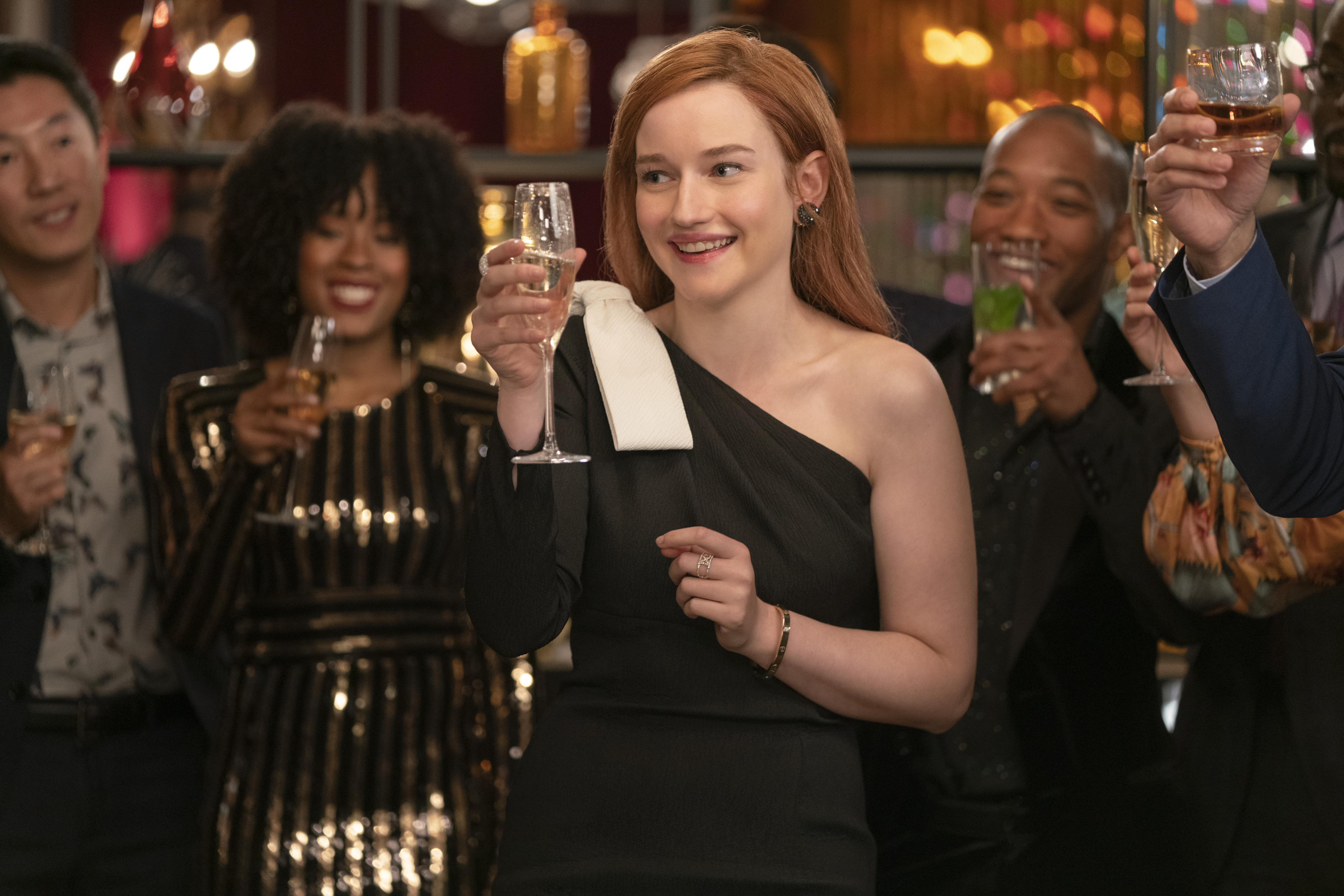
Characters frequently ask, “what does Anna want?” An odd question given that what she wants, clearly, is easily-won money; even racking-up $400,000 on an unsuspecting benefactor’s credit card. But if there is any doubt as to Anna’s thoughts, there is none whatsoever about what is going through the mind of investigative journalist Vivian Kent, played by Anna Chlumsky with eye-rolling, open-mouthed gaping and grimacing. Chlumsky gasps and gurns with shock at each revelation in the trite script, none of which surprise any viewer who has their facial muscles under control. Vivian is redeeming herself from being scammed by the subject of a previous piece she wrote. (The irony!). Her slimy boss has no faith in her and assigns her to ‘me-too’ stories, but after Vivian begs, with much face-scrunching and pouting, the gruff-but-perceptive boss of her boss gives her two weeks – “just two weeks mind, kid!” – to do the Sorokin story. Vivian is assisted by a hearty and amusing crew of has-been writers – an eccentric old guy in a cardigan, an eccentric old guy in a cap and an eccentric fat woman of indeterminate race.
For reasons best known to themselves, the producers of Inventing Anna have hired screenwriters who have obviously never spoken to a lawyer, met a lawyer, or even passed a lawyer on the street. Anna’s attorney, Todd Spodek (Arian Moayed, excellent in a ludicrous role) collaborates with Vivian in writing her story, with a complete disregard for ethics. In true mini-series fashion he eeks out bits of information, even saying things like, “I’m going out of the room for 5 minutes and you had better not look at this file that I am leaving open on the table.” Vivian walks in and out of his office, apparently at will. He cracks her spine while she’s writhing on all fours to relieve her back pain. Did we mention that Vivian is pregnant? Well she is and we are never allowed to forget it as she contorts, rolls on the floor, holds her back, levers herself into chairs and groans her way through it.
So why watch a whole 4 episodes? Why watch any more, as we probably shall? Because the true story is interesting enough and the performances are good (apart from a little over-acting from one cast member which we may have mentioned). More importantly though – there are the clothes, Bergdorf Goodman and the New York brownstone interiors. It’s almost enough.
[* To be fair to ‘Anna’, in the original it would be “Na Zdorovie” – Ed.] Continue Reading →The House of Gucci (dir. Ridley Scott)

(2021)
Poor Ridley doesn’t know what kind of director he is – sci-fi (Alien, Blade Runner), historicist (Gladiator, Robin Hood) or God-Love-America (Thelma and Louise, Black Hawk Down)? He’s as confused as we are by his house-of-fashion-meets-financial-shenanigans offering, The House of Gucci. Gold-digger Patrizia Reggiani (Lady Gaga) meets Maurizio Gucci (Adam Driver) at a Milan party. She wants him, at least the Gucci part. He’s not interested, indeed he doesn’t seem to be interested in anything at all throughout the two and a half hour story, but Patrizia won’t leave him alone. She throws all of Gaga’s famous 5 foot 2 inches at him and he marries her in a lethargic sort of way, despite the disapproval of his father Rodolfo. Rodolfo seems to have been shoehorned into the script so that we can see Jeremy Irons do his louche, disaffected rich man bit (See Reversal of Fortune). Maurizio is exiled from the firm and works at his father-in-law’s trucking firm, but still manages to drive an expensively lace-clad Patrizia around in luxurious cars of the red sort. Maurizio’s uncle Aldo (Al Pacino – bring on some scenery, there’s chewing to do!) owns the business jointly with Rodolfo and likes the young couple. He gives them a couple of Concorde tickets for a wedding present before sneaking Maurizio back into the business. From then on it’s lots of financial shenanigans as everyone denounces everyone else for tax fraud, there’s a takeover, and eventually someone gets shot.
Scott might defend the lack of much-at-all about fashion in his film by saying that it is about financial shenanigans, denunciations, a takeover and a shooting, but it is called The House of Gucci and that does entitle the viewer to expect to see quite a bit of, oh I don’t know, Gucci? (Despite Gucci’s general ugliness: see main picture). We are told very little about the Gucci line, its origins, its reach. We’re supposed to know, it seems. Whereas we can be sure that if the film were The House of Ferrari, we’d know lots about cars by the end of it. It is reported that the film-maker had trouble sourcing original Gucci outfits from that period and it shows. Patrizia’s featured black and pink dress is in fact YSL. Tom Ford is a throwaway headline [The real Ford said of the film, “I’m still not quite sure what it is exactly.”]. There is one mingy atelier scene. There is one mingy Gucci shop scene. In the one mingy Gucci shop scene, we are asked to believe that Mrs. Maurizio Gucci would need to be told that she can have anything she wants as a special gift?
Lady Gaga has been praised for her performance and indeed, it is difficult to look at anyone else when she is on screen. Reminiscent of Marisa Tomei in her My Cousin Vinny days, the Lady’s performance is not subtle, but then again, the viewer gets the strong feeling that neither was Patrizia’s. Her evolving – and devolving – wardrobe shows that, indeed, clothes maketh the woman.

Like its director, the film just isn’t sure what it is. It looks nice, the Gucci homes are spectacular, either long and low and grey, tall and pink and frilly or Villa Balbiano on Lake Como (above, ’nuff said). But it wanders off from the internecine ruckus of a high-money family feud into confused and slightly silly takeover machinations. Good people throw up their hands and evil Arabs, including a very scary and formidable Nemir Kirdar (Youssef Kerkour) ruin everything. Maurizio still doesn’t care. He suddenly ditches Patrizia for a stick insect aristocrat. Aldo’s buffoonish son Paolo (Jared Leto) cares, but we are not sure about what, given that he has been dressed by a demented clown with a thing for neon corduroy, given a poor script and acting lessons by Mickey Mouse. Rodolfo is jogged out of his ennui long enough to tell Paolo (in a very pale and aesthetic way) that he is a design moron because he put pastels with brown; whereas Rodolfo the genius put tulips on a scarf. So Paolo pisses on the scarf. It’s like that.
Despite its many flaws, the House of Gucci is watchable, but wait for Netflix and try not to ask why Italian natives, supposedly speaking Italian, are doing so with bad and intermittent Italian accents.

The White Lotus

(Written and directed by Mike White) (HBO 2021)
“Eating the lotos day by day,
To watch the crisping ripples on the beach,
And tender curving lines of creamy spray;
… To muse and brood and live again in memory,
With those old faces of our infancy
Heap’d over with a mound of grass,
Two handfuls of white dust, shut in an urn of brass.” (Tennyson, Song of the Lotos-Eaters)
We don’t know if Alfred’s weird poem informed the consciousness of Mike White’s weird satire but we like to think so. This 6 part series, a sort of ‘Upstairs Downstairs’ meets ‘Fantasy Island,’ filmed at a swish resort in Hawaii, confirms that it’s not where you go but how you go that matters in life. Here we have an ensemble of well-to-do ne’r-do-wells descending on ‘The White Lotus’ for a week of sun, surf, fun and romance – guaranteed. Guaranteed by a staff that sets its bar high but doesn’t quite clear it – we’re not talking about Stevens in Remains of the Day, after all, but remains do feature – prominently.
There’s lashings of sex but very little romance. Newlyweds Shane and Rachel frolic but don’t really connect – since he’s an overprivileged and self-entitled mummy’s boor and she clings to her vocation as a struggling journalist even though she writes puff pieces and not very well at that. The Mossbacher family are diverging into their own private worlds, Mum as the default alpha patriarch, over-analyzing Dad bonding with son Quinn, both with arrested development; meantime spoilt daughter Olivia and her tag-along girlfriend Paula scoff at the world from behind their phones and their books on Nietzsche and Freud, managing to be woke and privileged simultaneously. There’s heaps of sun but not a lot of fun. Tanya is a bundle of haute psychosis symptoms who self-medicates and attaches herself to spa manager Belinda, in an opportunistic and parasitic fashion that damages and belittles them both. The various personas are beautifully done, and hence you never want to kill off anyone (okay, maybe Shane).
Bringing us to Shane’s bête noire, the undoubted star of the show, Armond. A manager whose every interaction with guests is a performance, Armond can barely manage himself, and once he falls off the wagon and into a pit of drugs and debauchery, not at all. Murray Bartlett gives us a complete embodiment of what Solzhenitsyn had in mind when he said, in The Gulag Archipelago, that “the line dividing good and evil cuts through the heart of every human being.” Twenty years in the States seems to have altered Bartlett’s accent somewhat – he seems more Kiwi than Aussie as Armond – but it doesn’t matter. He is well nigh perfect as he descends à la Dante, in manner both comic and tragic. And unrepentant over his carnality, wrath and sullenness, as in The Inferno, he recalls the happy hour of his lost bliss in pain. A second series has been announced but unless they can work Armond into it, we don’t see how it can succeed.

The gang’s all here: Murray Bartlett (Armond); Connie Britton (Nicole Mossbacher); Jennifer Coolidge (Tanya); Alexandra Daddario (Rachel); Fred Hechinger (Quinn Mossbacher); Jake Lacy (Shane); Brittany O’Grady (Paula); Natasha Rothwell (Belinda); Sydney Sweeney (Olivia Mossbacher); and Steve Zahn (Mark Mossbacher).

